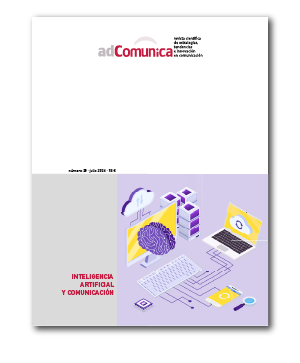Disonancia entre la transformación tecnológica y ética periodística: Una reflexión crítica del impacto de la inteligencia artificial en los medios de comunicación
##plugins.themes.bootstrap3.article.main##
Resum
Este manuscrito presenta un análisis crítico sobre el papel de la inteligencia artificial (IA) en los medios de comunicación contemporáneos, integrando perspectivas multidisciplinarias de la filosofía, sociología, comunicación e informática. A través de una revisión de publicaciones académicas y periodísticas, se examina la evolución histórica de la IA en el periodismo, sus aplicaciones actuales y los desafíos éticos y prácticos que conlleva su implementación. El estudio pone de relieve cómo la IA está transformando la producción y distribución de información, explorando problemáticas como los sesgos algorítmicos, la personalización de contenido y su impacto en la integridad periodística y el debate público. Se enfatiza la necesidad de desarrollar enfoques de regulación y gobernanza que garanticen un uso ético y responsable de la IA en los medios, considerando las implicaciones prácticas de su implementación. Este análisis busca contribuir al desarrollo de un marco conceptual sólido para la evaluación crítica del papel de la IA en el periodismo, buscando un equilibrio entre la innovación tecnológica y la preservación de la integridad periodística. En última instancia, a través de este monográfico se busca enriquecer el debate académico y contribuir al desarrollo de un marco conceptual sólido para la evaluación crítica de esta área de estudio en constante evolución.
Descàrregues
##plugins.themes.bootstrap3.article.details##
1. Política propuesta para Revistas que ofrecen Acceso Abierto
Los autores que publican en esta revista están de acuerdo con los siguientes términos:
- Los autores conservan los derechos de autor y garantizan a la revista el derecho de ser la primera publicación del trabajo al igual que licenciado bajo la licencia CC BY-SA, que permite a otros compartir el trabajo con un reconocimiento de la autoría del trabajo y la publicación inicial en esta revista.
- Los autores pueden establecer por separado acuerdos adicionales para la distribución no exclusiva de la versión de la obra publicada en la revista (por ejemplo, situarlo en un repositorio institucional o publicarlo en un libro), con un reconocimiento de su publicación inicial en esta revista.


